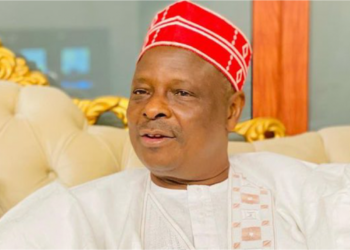 Explosions were heard Saturday in Maiduguri, just hours before election polls were scheduled to open. The source of the blasts was not immediately clear, but Boko Haram insurgents have repeatedly targeted Maiduguri.
Explosions were heard Saturday in Maiduguri, just hours before election polls were scheduled to open. The source of the blasts was not immediately clear, but Boko Haram insurgents have repeatedly targeted Maiduguri.
In another northeastern town, Geidam, Reuters news agency reports attacks from Islamist militants have forced families to leave their homes. One resident, speaking to Reuters by telephone, said, “We have fled, along with our wives and children and hundreds of others.” He said, “We are right now running and hiding in the bushes.”
Nigeria’s president says polling stations will be safe Saturday when the country holds national elections after a one-week delay.
Presidential promise
In a nationally televised address Friday, President Muhammadu Buhari said security has been mobilized across the country for the polls and pledged people will be able to vote without intimidation or fear.
Political tensions are running high as Nigerians prepare to elect a new president and parliament. During the campaign, Buhari’s All Progressives Congress and the main opposition Peoples Democratic Party accused each other of attempting to fix the outcome.
Earlier this week, Buhari urged the military to be “ruthless” with anyone who tries to interfere in the voting process.
The remark drew sharp criticism from his main challenger, Atiku Abubakar, who said the military has “no role to play” in the elections.
Elections a week late
Nigeria’s elections were initially planned for last Saturday, but the electoral commission, citing logistical issues, abruptly postponed them five hours before polling stations were set to open.
The commission said Friday it is ready to deliver free and fair elections. Rotimi Oyekanmi, chief press secretary to commission chairman Mahmood Yakubu, said officials have resolved most of the problems that led to postponement of the Feb. 16 vote.
About 84 million Nigerians are registered to vote. The presidential contest is widely seen as a tight race between President Buhari and Abubakar, a former vice president.
After ruling briefly as a military dictator in the 1980s, Buhari won the 2015 election, becoming the first opposition candidate to defeat a sitting president.









